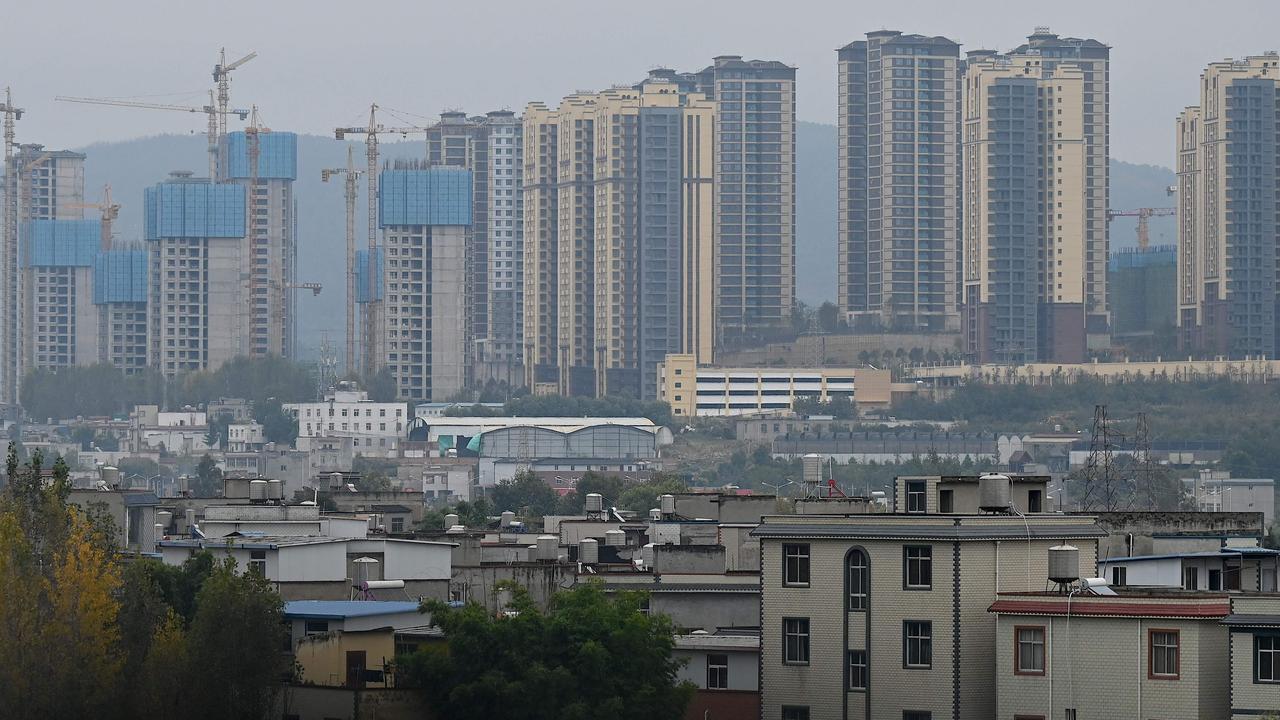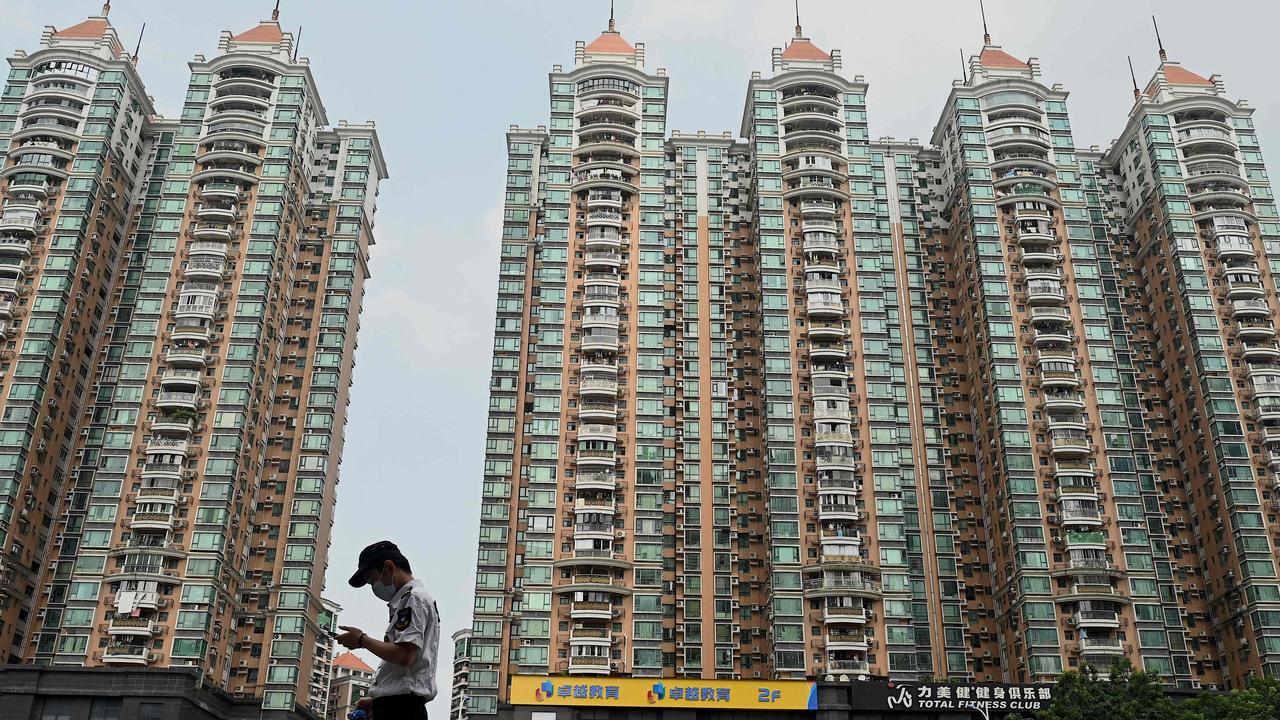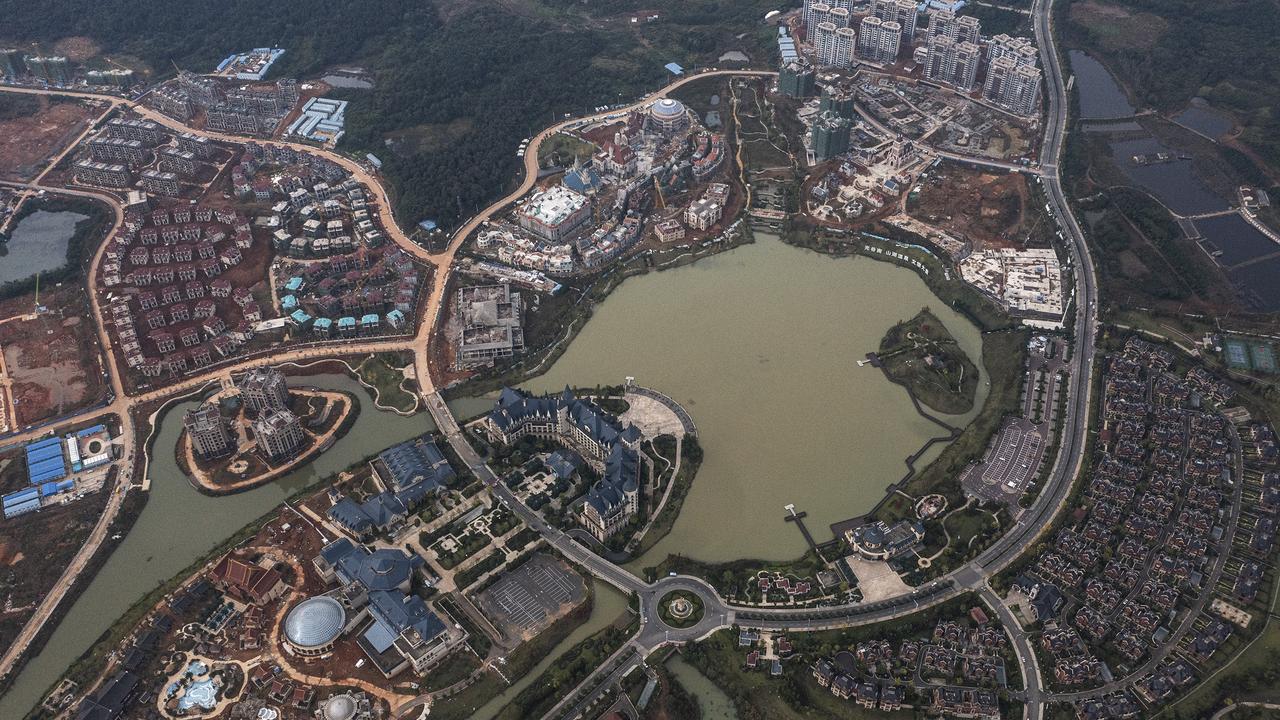Blow to China’s $82 trillion property industry could impact Australia
The property developer China Evergrande is like a burning plane waiting to crash, but its not the only issue in the country that could impact on Australia.
China’s housing market was worth a whopping $US62.6 trillion ($83.6 trillion) last year but there are fears it could all come crashing down causing a knock on effect in Australia.
Not only is one of the country’s biggest property developers China Evergrande teetering on the brink of collapse, but the Chinese Communist Party also announced plans to trial property taxes on both residential and commercial properties.
It’s a big move considering an estimated two thirds of wealth is tied up in property in China, 90 per cent of families in urban areas own their home and around 10 per cent own three properties.
The proposed tax, which would be an annual levy based on the value of the house, has experts warning it could cause a collapse in house prices and also impact consumer spending.
Michael Shoebridge, director of defence, strategy and national security at the Australian Strategic Policy Institute, said it was clear the Chinese government wants to find a way to deflate the overheated property market.

But he said the property taxes risk causing way too much damage to an already distressed market.
Chinese President Xi Jinping has already been forced to scrap introducing the property tax nationally and instead is piloting a program in 10 cities, he noted.
“So there is a recognition of the really difficult challenges in the Chinese property market and financial sectors because of the distress of Evergrande and others,” he told news.com.au.
“But even doing this pilot in 10 cities across China still sends further shock into the distressed market and signals this is going to happen to the rest of China.
“The biggest issue is about social stability in China and forcing divestment in multiple properties will not just impact wealthy Chinese citizens but every day households as property is seen as a more secure investment in the Chinese economy.
“That’s because other Chinese investment had high risks such as buying shares on the stock markets with rollercoasters caused due to arbitrary government intervention or investing in the tech sector, which are now subject to much greater Chinese government control, like with Ali Baba.”
It has been exactly a year since Chinese businessman Jack Ma publicly criticised his communist government and since then he’s lost hundreds of billions of dollars of his vast fortune.
Over the last 12 months, his business, Alibaba — pegged as China’s version of eBay, Amazon and PayPal all rolled into one — has lost around $US373 billion ($A497 billion).

Meanwhile, property developers’ appetite for buying land has dropped, causing a slowdown in construction and potentially resulting in pain for Australia's most value export – iron ore, which bought in $A149 billion last financial year.
Currently, China’s construction energy uses around 25 to 30 per cent of the country’s steel, which is made largely from Australia’s iron ore.
A drop in demand could mean for every $US10 drop in the price of iron ore there is $A6.5 billion wiped out of Australia’s economy, according to budget estimates.
“I think further slowing of construction in China probably will effect the iron ore price but Treasury forecasts have been much lower prices than market prices and a much lower iron ore price is baked into revenue projections from Treasury,” Mr Shoebridge added.
China’s real estate market is responsible for around one quarter of the country’s economic output, but Mr Shoebridge said the impact on property will cause a broader problem too.
“The bigger problem with the further shock to the property market and combined with other risks inside from the Chinese economy is Chinese people are now having trouble about where to put money that don’t look like big risks for them,” he said.
“And when you've got a rapidly ageing population without big families, who can bail the ageing parents out of financial trouble when low risk investments is what they need and can’t find? That is the bigger picture and why this isn’t really about the housing market.”

A drop in wealth for ageing parents could also put a dent in Australia university’s market with foreign students worth billions.
Australia’s education exports hit $40.3 billion in 2019 but fell to $31.7 billion in 2020 and were down by 36 per cent for the first half of this year owing to border closures, according to Commonwealth Bank analysis.
International students paid $12.6 billion in tuition fees in 2020 and $18.9 billion in living expenses, it also found.
But Mr Shoebridge didn’t see the property issue having a big knock on effect to Australia’s education system, which has already been decimated by the pandemic.
“I think the much more difficult issue for the Australian education sector to come to terms with is its very unlikely that — the kind of presence Chinese students had before the pandemic and before the fundamentally changed relationship between China and Australia — is not going to return,” he said.
“If it does, it will be used as a coercive lever over universities and the Australian government and in lots of ways we shouldn’t want it to return. The idea that the economic damage in housing sector means they won’t send children to Australian universities – I don’t think that’s the primary issues for our education sector.
“The message they should have got is they need to diversify away from the China market and this is only reinforced by further economic stress in the Chinese market.”

As for Evergrande which continues to starve off default, Mr Shoebridge said emergency bond payments made “by the skin of their teeth” isn’t inspiring confidence that they will pull themselves out of their $400 billion debt hole.
He is convinced the property developer will collapse as it doesn’t have the financial backing or heft to remain afloat.
“I’m sure the Chinese authorities and the leadership of Evergrande are calling in a bunch of favours for various investors and others to help moderate its fall, but it’s pretty clear Evergrande does not look viable,” he noted.

Mr Shoebridge said its likely the Chinese government is allowing a slow rolling collapse of Evergrande that lets the sector adjust and makes the damage less immediate.
“As a company you would normally think there would be a much made of divestments and restructuring and a whole bunch of creditors would lose money – that would be happen in most other parts of the world with distressed business like this,” he said.
“But we are seeing a managed exit of Evergrande and the Chinese authorities goal is to have that take some time to moderate the shock.
“Evergrande is like a plane that is not going to fly anymore as it’s on fire and the impact depends on whether it crashes or there is a forced landing and it burns out on the runway.”






